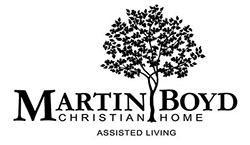As our loved ones age, it’s essential to ensure they receive the care they need in their golden years. However, the cost of senior living can be a significant financial burden for families–especially when they find out that most senior living communities are 100% private pay, meaning they don’t take government subsidies like Medicare or Medicaid.
Fortunately, there are various payment options available to help alleviate this financial strain. In this guide, we will explore a range of payment methods for senior living, including veterans benefits, long-term care insurance, and selling assets such as a home or other property. By examining these options, you can make informed decisions to ensure your loved ones receive the care they deserve without sacrificing your financial wellbeing.
Veterans Benefits
Did you know that the Department of Veterans Affairs (VA) offers something called Aid and Attendance benefits for U.S. military Veterans and surviving spouses?
VA Aid and Attendance or Housebound benefits provide monthly payments added to the amount of a monthly VA pension for qualified Veterans and survivors. If you qualify, you can get a monthly stipend that can be used to pay for or offset senior living expenses. Martin Boyd Christian Home has representatives who can provide you with information on this program.
Long-term Care Insurance
If your loved one carries long-term care insurance, this can be a great option to consider when paying for senior living. This specialized insurance is designed to cover the costs associated with long-term care, such as bathing, dressing, and other tasks commonly offered in assisted living.
You’ll want to research your policy to ensure that it covers your loved one while living in an assisted living or memory care community.
Selling Assets
Selling a home or property can be a viable option for financing senior living. By liquidating these assets, you can generate funds to cover the costs of senior living.
However, it is essential to consider the tax implications that may arise from the sale. The sale of a primary residence may qualify for certain tax exemptions, such as the capital gains exclusion if certain criteria are met. It’s crucial to consult with a tax professional or financial advisor to understand the specific tax implications and plan accordingly.
Conclusion
For many families, figuring out the financial piece of funding senior living for their loved one can be challenging and daunting. Fortunately, there are options out there for those who need to offset the cost of assisted living or memory care.
For veterans and their spouses, exploring the array of benefits available can lead to significant financial support in covering senior living expenses. Additionally, long-term care insurance provides a safety net, offering coverage for various types of care, while also protecting individuals from the potentially staggering costs associated with senior living. Lastly, the sale of a home or property, when done strategically and with careful consideration of tax implications, can yield the necessary funds to support senior living needs.
In the end, weaving together a tapestry of veterans benefits, long-term care insurance, or the sale of assets can help create a solid foundation that supports the future of your loved ones as they navigate their senior years.
If you’re ready to look at senior living for your loved one, contact us at Martin Boyd today.

